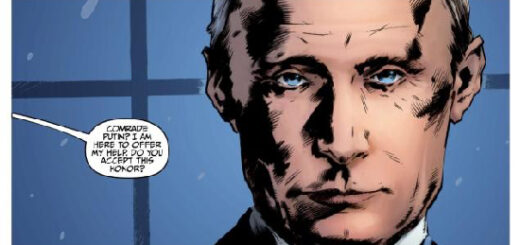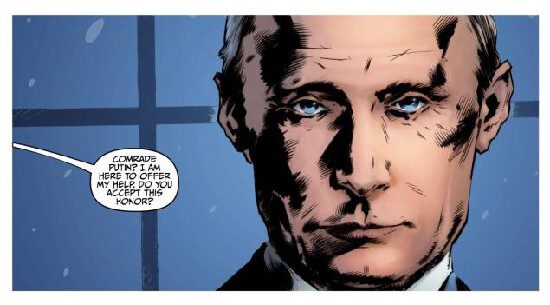Mindy Newell: Baa, Baa, Black Sheep
“If I were to run, I’d run as a Republican. They’re the dumbest group of voters in the
country. They love anything on Fox News. I could lie and they’d still eat it up. I bet my
my numbers would be terrific.” – Donald Trump, People Magazine, 1998
“It is better to live one day as a lion than 100 years as a sheep.” – Benito Mussolini
Perhaps this is “bad business,” but before you do anything else, I want all of you to go over to Michael Davis World – yes, that Michael Davis, who happens to be my loooong time friend and fellow ComicMix columnist – and read Martha Thomases’s latest piece, entitled “Trump Card.” Then sit and think. Then read it again.
Then be afraid. Be very afraid.
I know I don’t often get political – oh, c’mon, who the hell do I think I’m kidding? – but this time I have to tell you that I am more consumed with fear for this country than even when the Bush administration sold the American public a bill of goods, the Brooklyn Bridge, a mule they swore was a horse, and lied us into the Iraq War. Which, if you understand history and current events, you’ll be able to follow the timeline that has brought us to the cliff on the edge of the abyss that is Donald Trump.
Ronald Reagan was called the “Teflon President,” but never in all my life have I seen a truer description of the “Baby Man,” as Jon Stewart calls the presumptive Republican Presidential candidate – no matter what he says, no matter what he does, no matter what is revealed, nothing touches Trump; criticism and truth slides off of him the way a well-cooked omelet slides out of a sauté pan, be it insults, lies, racial slurs, gender insults, religious attacks, or back-tracking.
No matter what they have previously stated on the record about never endorsing Trump, just about every Republican still in office or up for re-election in the fall is falling into line behind him, forgetting their oath to this country to protect it “against all enemies, “foreign and domestic.”
Speaker of the House Paul Ryan hems and haws and hems and haws, and I am actually disappointed in the man. Although I am unlikely to ever agree with his policies, there is no denying that Mr. Ryan is not stupid. But instead of having the balls to stand up and say “there is no way I am ever going to endorse this guy, there is no way this phony in an expensive suit is suitable for the office of the President of the United States, there is no place for a loose cannon like Donald Trump in the White House,” Mr. Ryan, like too many of his fellows, looks only to his own future. He could have simply laughed at the suggestion that Trump will fire him from the position of Speaker of the House if Ryan doesn’t go along with him – that alone shows how ignorant Donald Trump is about the workings of our government, as the Speaker of the House is not a contestant on “The Apprentice,” and cannot be fired by the President. He can only be fired by his fellow Republicans in the House… if they maintain the majority in the November election.
There are Republicans currently in office who are refusing to support Trump:
John McCain (R-AZ) and Lindsay Graham (R-SC) being the two biggest names, though both claim it is because he does not have “conservative bona fides.” Of course McCain is obviously worried about the Hispanic and Latino vote in Arizona, as he’s running for re-election in his Latino-heavy state. Hey, while I’d rather hear them both say it’s because he’s a loon, I’ll take it. However, there are more conscientious Representatives and Senators out there:
Rep. Scott Rigell (R-VA) loses points because he is planning to retire at the end of his current term, but he did send a letter out to his supporters which urged them to vote for anybody but Trump: “My love for our country eclipses my loyalty to our party, and to live with a clear conscience I will not support a nominee so lacking in the judgment, temperament and character needed to be our nation’s commander in chief. Accordingly, if left with no alternative, I will not support Trump in the general election should he become our Republican nominee.”
Rep. Carlos Curbelo (R-FL) said, early in the campaign “This man does things and says things that I teach my six- and three-year-olds not to say. I could never look them in the eye and tell them that I support someone so crass and insulting and offensive to lead the greatest nation in the world.” You go, sir! That’s what I want to hear! Representative Curbelo has also said that he will back either a third-party candidate or a write-in.
And yes, there are many Republicans whose names are not familiar to the national public, but are on the inside of Washington politics who are open about their opposition, such as Elliot Cohen, counselor to the State Department during George W. Bush’s administration, who tweeted “…I will oppose Trump as nominee. Won’t support & won’t work for him for more reasons than a Tweet can bear.” He also wrote an open letter to Trump, signed by 60 members of the GOP National Security committee which said: “Mr. Trump’s own statements lead us to conclude that as president, he would use the authority of his office to act in ways that make America less safe, and which would diminish our standing in the world. Furthermore, his expansive view of how presidential power should be wielded against his detractors poses a distinct threat to civil liberty in the United States.”
Max Boot, foreign policy adviser to Sen. Marco Rubio, and a fellow on the Council on Foreign Relations told the New York Times that “I would sooner vote for Josef Stalin than I would vote for Donald Trump. There is no way in hell I would vote for him. I would far more readily support Hillary Clinton, or Bloomberg if he ran.”
I don’t know if the “Republicans for Hillary” movement will gain any ground, at least in public, but I do think – and many people have derided me for thinking this – that a lot of them will quietly take advantage of our “secret ballot” system to indeed pull the lever or push the button or pencil in the box for the Democrat who would be our first woman President…or will “feel the Bern.” Maybe this isn’t brave of them, as they will be protecting their own Republican asses, but at the least they will be doing the right thing for the country. In fact, I will go so far as to say that I wouldn’t be afraid to bet that the Bushes (all of them, including the wives, kids, and assorted family members old enough) will be voting the Democratic Presidential ticket, whether it’s Hillary or Bernie, though I wouldn’t bet that on that outcome when it comes to their Senate, Representative or local races.
Last February the website Gawker punked Trump by sending him quote by Benito Mussolini, the fascist Italian dictator, which Trump retweeted. The quote was: “It is better to live one day as a lion than one hundred years as a sheep.” When confronted about it by Chuck Todd on NBC’s Meet The Press, and if the candidate wanted to be associated with a dictator, Trump said:
“Chuck, it’s OK to know it’s Mussolini. Look, Mussolini was Mussolini. It’s OK to – it’s a very good quote, it’s a very interesting quote, and I know it. I saw it. I saw what – and I know who said it. But what difference does it make whether it’s Mussolini or somebody else? It’s certainly a very interesting quote… I want to be associated with interesting quotes. And people, you know, I have almost 14 million people between Instagram and Facebook and Twitter and all of that. And we do interesting things. And I sent it out. And certainly, hey, it got your attention, didn’t it?”
That answer is pure Trump.
As for those 14 million followers on “Instagram and Facebook and Twiiter and all that?” As I told our editor Mike Gold today after seeing Captain America: Civil War, “Those yahoos think Trump is talking about a pizza parlor in New York called ‘Mussolini’s’.”
Open all night.
Oh, yeah. And Civil War rocked!!!!!!



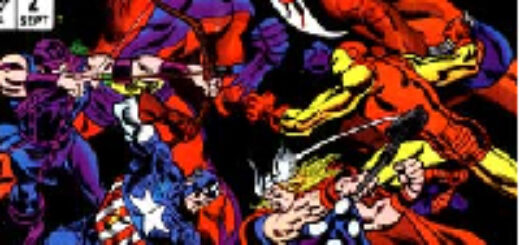
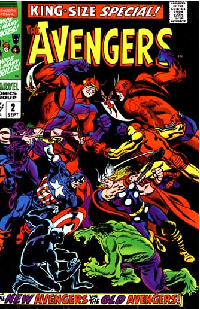
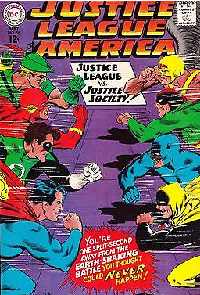
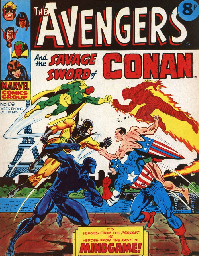
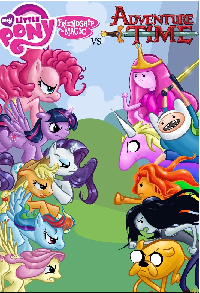
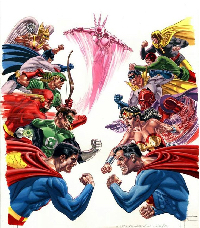
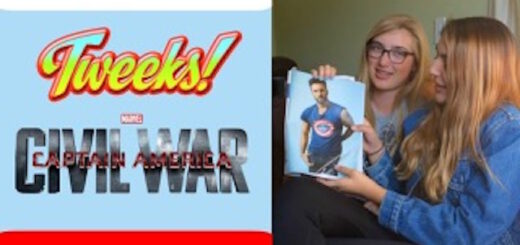
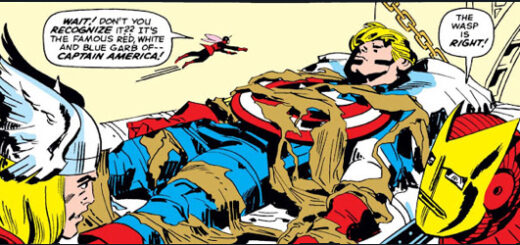
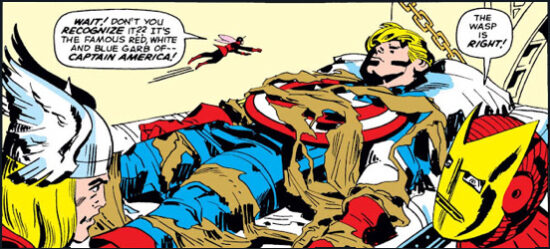
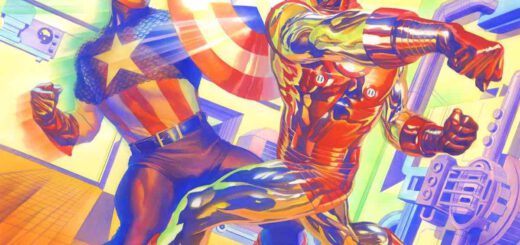
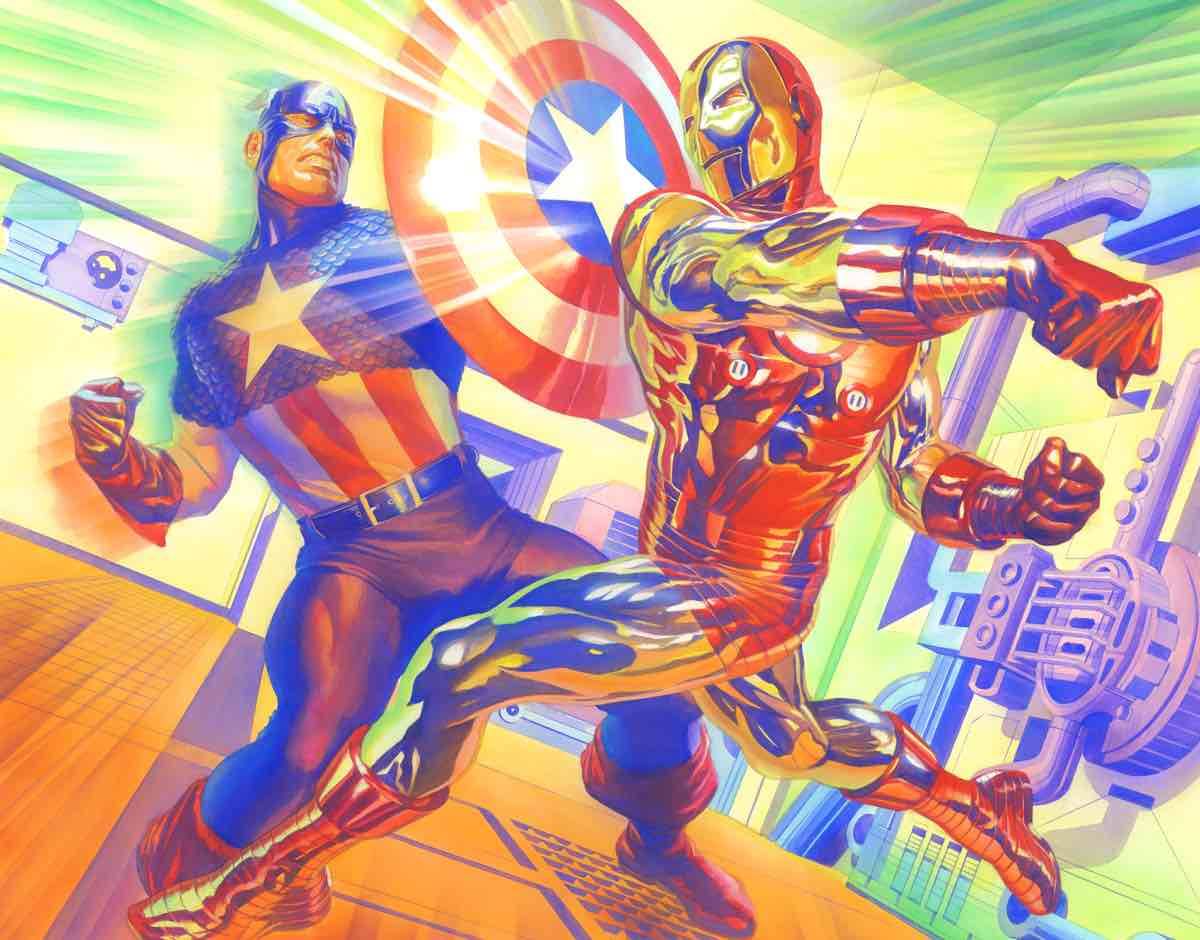
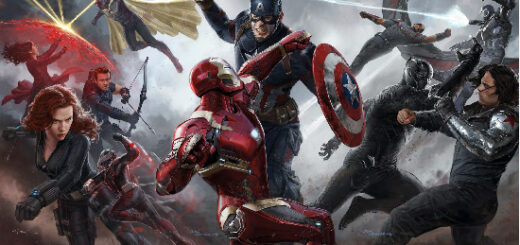
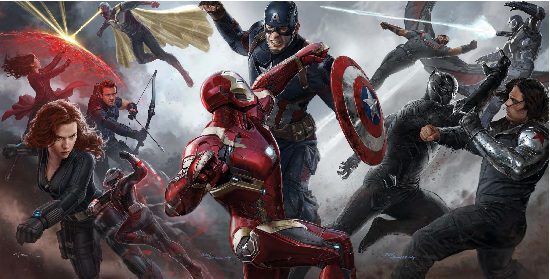




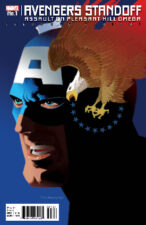



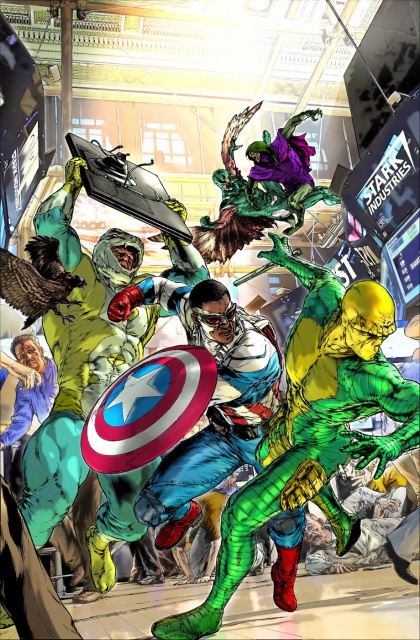 Sorry I’ve been absent the past couple of weeks. Blame it on the taxing business of prepping for the taxing business. Now I’m back. Not back with a vengeance – I’m not the Punisher – back with a comic book to write about:
Sorry I’ve been absent the past couple of weeks. Blame it on the taxing business of prepping for the taxing business. Now I’m back. Not back with a vengeance – I’m not the Punisher – back with a comic book to write about: 